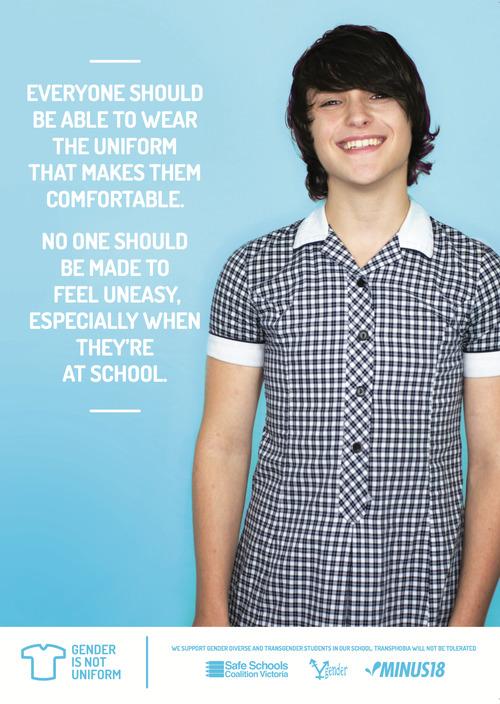Gender identity
is a complicated subject to talk about in our society. Too many people don't
understand the concept or how it “works”. Gender identity is something that
needs to be talked about because too many people are clueless about it. I learned
about gender identity in psychology where we never talked about beyond a
definition. I was able to apply it to all of things that I had learned about
transgenders on tumblr. Everything clicked in my head and it made sense and to
me, I think everyone needs to be aware of how it affects everyone in their day
to day lives.
Gender
identity is, simply put, what gender you relate to and identify with.
Generally, males identify as masculine and females identify as feminine.
However, sometimes makes identity as feminine and females identify as
masculine. The majority of the population is seen as “normal” while those who
identify as the opposite sex are often outcasted. As a girl who identifies as
female, I am considered “normal”. But the term normal is relative. In other
aspects I am considered “weird” so who is to say that people who identity as
the opposite sex aren't normal? I don't think that they should be outcasted by
society just because they are a little different. We're all different in our
own ways and this is theirs. When I see someone who acts or dresses like the
opposite sex we treat them like everyone else because that's how they deserve
to be treated. They shouldn't be treated any different than you or me because
in the end they're people too and all people deserve a chance.

I think
a lot of things influence gender identity. A lot, I think, is biological, but
it could also be influenced by parents and media. I don't think that that plays
as a big a role as biology, though. I do think the men suffer more when they
identify as female. Society has taught us that men are supposed to be strong,
tough, and basically the opposite of everything feminine, so seeing a guy
dressed as a girl automatically puts these thoughts in your head that tend to
be negative. These kids suffer relentless bullying and psychological trauma. In
fact, these students “are more
likely than their heterosexual peers to suffer health risks, including
substance abuse, depression, and suicide, due to some extent to the continuing
violence and harassment they experience.” (Rienzo, Button, Jiunn-jye,
& Ying, 2006). This includes all LGBT youth, boys and girls. For girls who identify as male it's a little different,
however. If a girl dresses as a guy it's often seen as cool or as skater or tom
boy. It's not as big of a deal, but they can suffer the aforementioned bullying
and depression brought on by those who don't approve of girls dressing in a non
girly manner.
In the
end I really do think that everyone deserves to be treated equal regardless of
what gender you identify with. Sadly, I don't think that's going to happen
anytime soon.
Rienzo,
B. A., Button, J. W., Jiunn-jye, S., & Ying, L. (2006). The Politics of
Sexual Orientation Issues in American Schools. Journal Of School Health,
76(3), 93-97. doi:10.1111/j.1746-1561.2006.00075.x